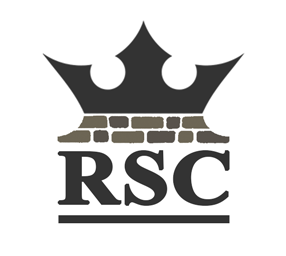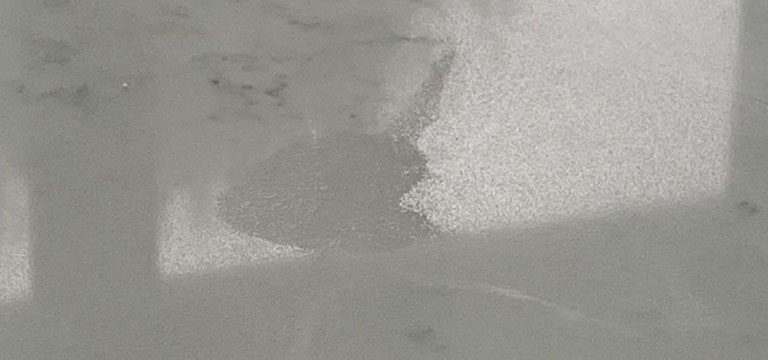Last Updated on May 6, 2025 by Royal Stone Care
What is baking soda?
You’ll almost certainly have heard of it, but would you be able to describe exactly what it is? Baking soda is the common name for sodium bicarbonate, and it’s a salt which appears as a white solid and often looks like a fine powder. However, technically this substance is actually crystalline.
Baking soda is a multi-purpose product, and its uses range from tooth whitening to sunburn relief to stain removal. Indeed, it’s a basic household product and you probably already have a packet of it in the back of a cupboard somewhere.
Can I use baking soda on marble?
The short answer is yes, you can use baking soda to clean marble countertops, flooring, fireplaces and similar pieces. And it can be more effective than warm water and a soft cloth alone.
But bear in mind that it’s a mildly abrasive alkaline. So you’ll need to use it gently, and with caution given that marble can be quite a vulnerable stone and is therefore quite prone to staining and scratching. So remember to go easy on the elbow grease! And you shouldn’t use this product to clean your marble every day. Equally, make sure the stuff doesn’t remain on your stone’s surface for more than a few seconds. Finally, even light abrasives like baking soda can damage stone surfaces. So if you use it too often, your marble could end up looking rather dull.
What are the benefits of using baking soda on marble?
There are a number of these, including:
- It’s nice and affordable
- It’s effective as both a stain remover and sanitiser
- Baking soda can help remove unpleasant odours
- It contains no harsh chemicals
- It’s a natural disinfectant
- Baking soda is less likely to ‘etch’ your marble than products like vinegar, some detergents, ammonia or washing-up liquid.
How to remove stains from marble with baking soda step-by-step tips
Step 1: Gather your materials
You’ll need to have some water and a soft, damp cloth (never a scrubber) to hand as well as, obviously, some baking soda. The best way to clean marble using baking soda is to make a DIY poultice that acts as an effective stain remover overnight. For more obstinate stains, it’s also worth getting hold of some hydrogen peroxide. (Read on to learn more about that.)
Step 2: Prepare the marble surface
Before making the poultice, wash down your worktop with a mild soap or washing-up liquid and water.
Equally, if the stain you want to shift is on a highly visible part of the counter, try working on a concealed spot first – such as a hidden corner or the underside, to be certain you’re happy with the results.
Step 3: Mix the baking soda poultice
It’s worth spending a bit of time getting this right. Add a heaped tablespoon of baking soda to around a teaspoon of water, and mix to crate an icing-like consistency. (Add more water if it’s too thick.) Stir until you have the correct consistency.
Step 4: Apply the baking soda poultice on the marble stain
This step is as simple as spooning your paste on to the stain and covering it with a plastic wrap. Leave it overnight.
Step 5: Remove the baking soda poultice safely from the marble
The next morning, you’ll find the poultice has turned flaky and dry. Remove it carefully using a kitchen utensil such as a spatula before rinsing the whole area with soap and water.
What to do if the stain remains?
There are a couple of things you can do if the mark persists. You could make up another poultice and, again, leave it overnight – or perhaps even for up to three nights.
Alternatively, you could put some hydrogen peroxide into the mix to tackle stubborn stains. To do this, substitute the water in the ‘recipe’ for hydrogen peroxide. Apply, leave overnight in the usual way, and then remove and rinse as you did before. With luck, the hydrogen peroxide’s extra bleaching properties will banish the blemish completely.
Bear in mind that the poultice can remove your marble’s sealant as well as the stain. So you might have to reapply this to the part of the worktop where you placed your poultice. Additionally, your marble may have a wet appearance for a day or two.
How we can help
At Royal Stone Care, we are marble restoration and repair specialists. Cleaning your marble yourself with baking soda is perfectly possible, but it still needs doing extremely carefully. So if you feel it’s a job for the professionals, we understand. And we’re here to help with the right expertise and equipment. Call the friendly team today for a no-obligation quote, whether you want marble chip repair, a one-off deep clean or anything else.
Request a quote
